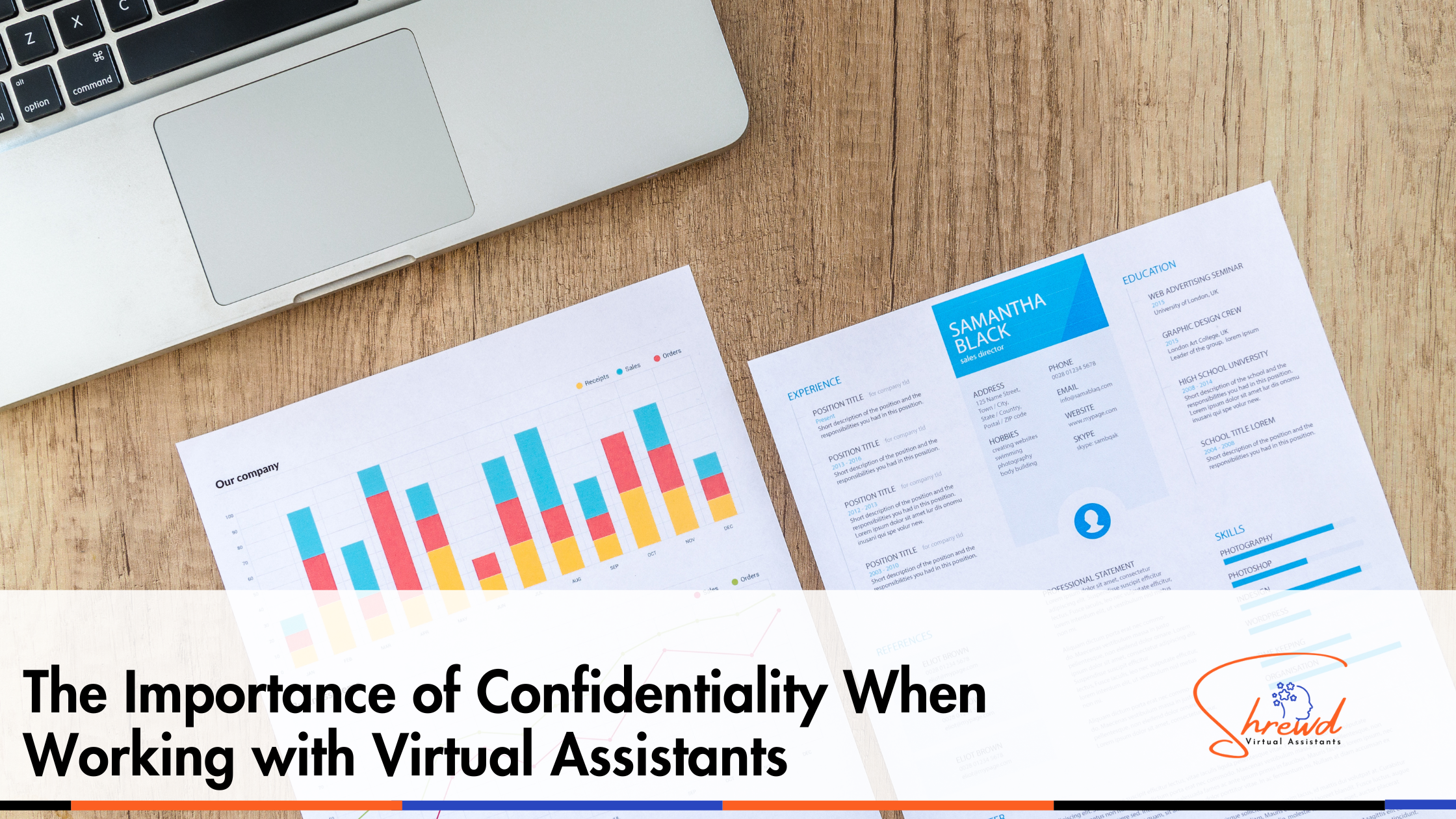Do you know that when you hire a virtual assistant, they often gain access to sensitive company data, client information, business plans, and even financial records?
If that data falls into the wrong hands or gets misused, the consequences could be severe.
That’s why ensuring confidentiality is so important when working with virtual assistants.
In this blog, we’ll break down why confidentiality matters, the risks involved, and the steps you can take to protect your business.
Why Confidentiality Matters
Confidentiality is all about keeping sensitive information safe and making sure it doesn’t get into the wrong hands.
With virtual assistants, this is especially important because they often deal with private details that you wouldn’t want just anyone to know.
Here are a few reasons why confidentiality is crucial:
Protecting Your Reputation
Imagine if sensitive client data or internal business strategies got leaked. It wouldn’t just be a one-time issue; it could seriously hurt your company’s reputation. Clients and partners need to trust that you can keep their information safe. If they hear about a breach, they might take their business elsewhere. Keeping confidentiality at the forefront ensures your company stays trustworthy and professional.Avoiding Legal and Financial Trouble
Depending on your industry, there may be strict laws around how you handle sensitive data. For example, industries like healthcare and finance have regulations like HIPAA or GDPR, which set rules about how private information should be handled. If a virtual assistant mishandles data, you could face hefty fines or legal trouble. By making confidentiality a priority, you reduce the risk of non-compliance and the headaches that come with it.Protecting Intellectual Property
Virtual assistants often work on tasks that involve sensitive business information—like product designs, marketing strategies, or new software. If this information leaks to a competitor, it could seriously damage your competitive edge. Confidentiality ensures that your business’s innovative ideas and strategies stay within your company.Maintaining Client Trust
If your VA is involved in client-related tasks, they may handle personal information, purchase histories, or financial records. Your clients trust that their data will remain private. Any breach of that trust can destroy relationships and hurt your business. Confidentiality helps maintain that trust and keeps clients coming back.
The Risks of Breaching Confidentiality
While virtual assistants can make your life easier, there are risks if confidentiality isn’t taken seriously. Here are a few things that could go wrong:
- Data Theft: If a virtual assistant doesn’t protect data properly, or worse, if they misuse it, private information could be stolen and sold to third parties.
- Accidental Sharing: Sometimes, VAs might accidentally share sensitive information with people who shouldn’t have it, simply because they weren’t aware of the rules around confidentiality.
- Insecure Communication: If you or your VA use unsecured platforms like personal emails or messaging apps to share data, it’s more likely that information could be intercepted.
- Weak Security Practices: If your VA doesn’t use proper cybersecurity practices (like up-to-date antivirus software), your business becomes vulnerable to hacking or data theft.
How to Ensure Confidentiality with Virtual Assistants
The good news is, there are steps you can take to protect your business and ensure confidentiality with virtual assistants. Here are some best practices:
Sign a Non-Disclosure Agreement (NDA)
Before your VA starts working, have them sign a non-disclosure agreement. This legal document outlines what information is confidential and the consequences if they violate the agreement. An NDA sets clear expectations and shows that confidentiality is a priority for your business.Limit Access to Sensitive Data
One simple way to protect confidential information is to give your virtual assistant access only to the data they need for their tasks. Instead of sharing everything, limit their access to what’s necessary. This way, even if there’s a mistake, the amount of sensitive data at risk is much smaller.Use Secure Communication Tools
Make sure you and your virtual assistant are using secure platforms to share data. Avoid personal emails or unsecured messaging apps, and instead use encrypted services and secure file-sharing platforms. This adds an extra layer of security.Provide Confidentiality Training
Even if your VA is experienced, it’s a good idea to provide training on confidentiality specific to your business. Go over what information is sensitive, the rules around handling it, and any industry regulations that might apply. The more informed your VA is, the less likely it is that something will go wrong.Regularly Monitor VA Activity
Keep an eye on what your virtual assistant is accessing and doing, especially when it involves sensitive information. Regular monitoring can help you spot potential issues before they become major problems. If you notice anything off, address it right away to reinforce the importance of confidentiality.Establish Secure Communication Protocols
Create clear guidelines for how you’ll communicate with your virtual assistant when sharing sensitive information. Avoid unsecured communication methods like personal messaging apps. Instead, use encrypted services or business email accounts that offer better security.
Building Trust Through Confidentiality
Confidentiality isn’t just a business requirement—it’s about building trust.
When your virtual assistant knows how important confidentiality is and takes it seriously, it creates a safe and secure working relationship.
This peace of mind allows you to focus on growing your business, knowing that your sensitive information is in good hands.
A trustworthy relationship with your VA not only protects your business but also sets the foundation for long-term success.
When both parties understand and respect confidentiality, it helps create a working environment that benefits everyone.
Final Thoughts
Confidentiality is crucial when working with virtual assistants. Taking steps to protect sensitive data can save you from legal issues, reputational damage, and lost business.
By following the best practices outlined here, using NDAs, limiting access to data, securing communications, and training your VA, you can ensure your business’s information stays safe.
At Shrewdva, we understand how important confidentiality is, and we take it seriously. Our virtual assistants are trained to handle sensitive information with the utmost care. If you’re ready to grow your business while keeping your data secure, reach out to us today to learn more about how we can help!




